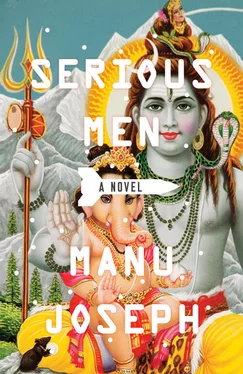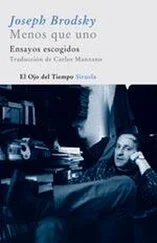‘This outfit is not quickie-friendly,’ he says.
All of a sudden police cars come with sirens blazing.
‘Superman!’ a cop screams. He is holding the red cape. Other cops point their guns at Superman. People peep through their windows above.
‘Shit!’ Superman says, looking a bit tired. ‘Can’t believe I’ve got to do this again.’ He dashes up to space, circumvents the globe a thousand times and gains a velocity faster than the speed of light to reverse Time. The rotation of the Earth changes direction. Life on Earth rewinds to the point when the pretty girl is walking through the market lane.
‘Not possible,’ Acharya muttered angrily. He never liked it when Time was exploited this way.
But then this was what modern physics itself had become. Time reversal, black holes, dark matter, dark energy, invisibility, intelligent civilizations. Exciting rubbish. The money was in that.
Oparna was imagining a young man with fiery eyes, long gaunt face, hair neatly combed. Handsome, she thought. What would such a man say to a pretty sepia girl?
‘What’s the progress with the cryosampler?’ the operatic voice of Acharya asked, destroying the ancient world she had carefully created in her mind. His elephant eyes were looking at her.
Outside, Ayyan Mani arranged the courier mail and the ordinary mail that had arrived. Acharya read only some of the courier mail, which he selected at random. He never opened the ordinary mail, those sad, stamped envelopes, though every day he received over fifty from laymen who believed they had a scientific temperament, or worse, had found baffling new theories. The only person who read those letters was Ayyan who knew how to repair an opened envelope. Once, Ayyan had thrown the letters in the bin and delivered only the courier mail to Acharya. The old man had looked confused for several seconds. There was an anomaly in a pattern he was used to. Ordinary mail and courier mail: that’s what he wanted to see. So he asked Ayyan about the ordinary mail, and when he learnt what the secretary had done with it he told him never to throw anything away. The letters were a broad mathematical clue for Acharya as to his place in public consciousness. In a way, he wanted to be there, in the minds of ordinary people, even though he could not bear to read what they had to say.
Ayyan went in with the letters, courier mail and faxes and set them on the desk. The basement item and Acharya were discussing how to send the balloon up and from where. Ayyan glanced at one of the telephones on the desk. It was still slightly off the hook. Good. When he went back to his seat in the anteroom he picked up a landline and listened in on the conversation between Oparna and the Big Man.
Thirty minutes later, when Ayyan put the receiver down, he wondered if there was a way he could tell Oja Mani how absurd were the occupations of these men and women who so easily frightened her. An old man wanted to search the atmosphere for microbes that were coming down from space. A young woman would soon study two bottles of air. This was what people did. This was their job. In the real world that lay outside the Institute, it was even more weird. Majestic men went in cars, in the isolation of the back seat, studying laptops on their way to work where they would think of ways to fool people into buying cola, or a type of insurance, or a condom that had dots on it. Or invest other people’s money in the stockmarket. Some wrote for the papers about how more and more women were interested in cricket, or why Afghanistan was important to Pakistan, or something like that, and some people rewrote what others wrote, some took pictures, some drew, some made faces in front of a camera. This was more or less what big people did, the beneficiaries of the millenniums, at the end of the tunnel of time — this was what they did. He could have done any of those jobs. Oja too. And they could have lived in a building that had a lift, and when they entered the kind of restaurants where emaciated men parked the cars of fat men they would not be so frightened by the calm of the cold air inside and the smell of mild spices and the difficult names of fish. It was so easy to be the big people. All you had to do was to be born in the homes where they were born.
Adi did not have that good fortune, but he would be there one day, among these people. He thought of his little boy, his large eyes that were like his mother’s and his unnatural calm. Ayyan’s mind, inescapably, went to what was to happen in just a few hours. He felt a bit nervous, and he liked the way his fingers quivered.
That evening, as Ayyan went in the Institute’s shuttle bus to the Churchgate station, he looked at the moronic city that was in the hysteria of going home. As though everyone here were going home for the first time. In the twilight that was now the colour of dust, in the fury of horns that was a national language because honking had telegraphic properties, cars stood stranded all around the bus like ants carrying the corpse of a caterpillar. Where a bumper ended and another began, in those crevices, people crossed the road and motorbikes wobbled through, honking. There was a caste system even on the roads. The cars, their faces frowning in a superior way through the bonnet grilles, were the Brahmins. They were higher than the motorcycles who were higher than the pedestrians. The cycles were lowest of the low. Even the pedestrians pretended that they didn’t see them. The bus had to be something in this structure, and Ayyan decided it was him. Lowly, but formidable and beyond torment. In any given situation in this country, Ayyan thought with a chuckle that did not surface, someone was the Brahmin and someone was the Untouchable.
As the bus inched through the evening life, the traffic grew. There was no space on the road any more. A man on a bike was riding on the pavement. When he tried to plunge into the road, a car hit him. He fell down but managed to get up. He looked shocked. That, Ayyan loved. After riding like a moron all over the place, observe the face of an Indian when he crashes. He is stunned.
This country had become a circus, and that was fair. What Ayyan’s forefathers were once to the Brahmins, the Brahmins were today to the world. They and the other privileged, all of whom he recognized only as the Brahmins, had become miserable backward clowns in the discreet eyes of the white man. And there lay the revenge of the Dalits. They were the nation now, and they oppressed the Brahmins by erecting an incurable commotion on the streets. The Brahmins had nowhere to go now but to suffer in silence or to flee to nonvegetarian lands. Their women could no longer walk on the streets in peace. Pale boys elbowed their breasts.
He looked without emotion at the tall unattainable apartment blocks that seemed to rise suddenly. In the pathetic clarity of hope that he once had in his early youth, he used to tell himself that a day would come when he would live in one of those buildings, that he too would get home in a lift. He knew those homes very well, he knew those lives. After all, he was once a door-to-door salesman for Eureka Forbes vacuum cleaners.
A job at the Eureka Forbes was not only heralded then as the final frontier in marketing but also glorified in underground novels as an assignment that led robust young men to the homes of hungry housewives, whose saris sometimes slipped off their blouses as they innocently enquired in how many colours the vacuum cleaners came, or their nightgowns rose in the tempest of a table fan, or they answered the door in a wet towel that they flung away upon the incandescent sight of the Eureka Forbes salesman. The roadside stalls too, where the odorous salesmen sipped tea, were replete with the legend of insatiable housewives. He never encountered such women, but in those homes he learnt about the charmed lives of the rich. He saw women group together and meditate and even chant, ‘I am beautiful.’ Men who were nothing without their inheritances dedicated to themselves a song called ‘My Way’. And he figured through the many pieces of conversations he overheard in those homes that there were four Beatles, and that you had to clap at the incipient guitar piece of ‘Hotel California’. He also saw men scoop the shit of their babies, and once he even saw a man in an apron take the dishes from the dining-table to the kitchen sink. They were the new men. In time, their numbers increased and he saw them everywhere now, standing defeated next to their glowing women. Ayyan often told the peons of the Institute, ‘These days, men live like men only in the homes of the poor.’
Читать дальше












